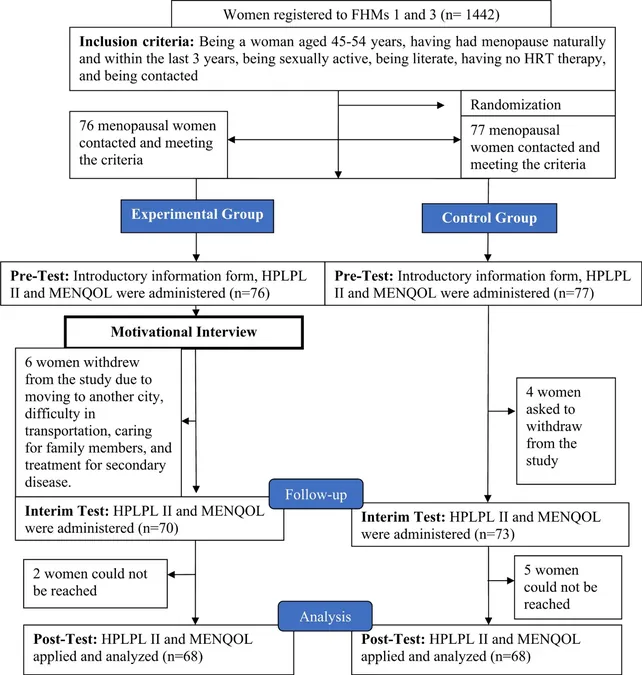
Unlocking a Healthier You: The Power of Motivational Interviewing for Menopausal Women
2025-07-04
Author: Ming
Women’s health is a cornerstone of family and community well-being, making it a key focus for public health initiatives. As life expectancy rises and societal conditions evolve, understanding women's health during various life stages, especially menopause, becomes imperative.
In Turkey, women are living longer, with an average lifespan of 80.7 years and menopause typically occurring between 45 and 47. This means many women spend roughly one-third of their lives post-menopause, a phase linked to numerous health challenges due to reduced estrogen levels, which can lead to complications such as cardiovascular disease, depression, and musculoskeletal issues.
The Need for Healthy Lifestyle Interventions
Research indicates that postmenopausal women often adopt poorer lifestyle habits compared to their premenopausal counterparts, especially in developing nations. This underscores the necessity for structured intervention programs aimed at enhancing healthy lifestyle behaviors, including diet, exercise, and mental well-being.
Enter Motivational Interviewing (MI)—a powerful, client-centered communication method that fosters intrinsic motivation for healthy behavior changes. Proven effective in various studies, MI encourages individuals to engage actively in their own health journeys rather than being passively directed.
Study Overview: Elevating Quality of Life through MI
A recent pilot randomized controlled trial aimed to investigate the impact of motivational interviewing on both healthy lifestyle behaviors and overall quality of life among menopausal women in eastern Turkey. This study not only measured success through established health behavior scales but also sought to adapt and personalize interventions.
From Theory to Practice: Study Design and Methodology
Conducted across two Family Health Centers, the study initially engaged 1442 women aged 45 to 54, whittling the sample down to 136 through carefully constructed selection criteria. Participants underwent an extensive set of evaluations, helping to ensure accurate measurements of their health behaviors and quality of life.
The Role of Motivational Interviewing
Motivational interviewing blended educational sessions with personal counseling, focusing on participants’ individual motivations and challenges. The experimental group participated in nine interactive sessions designed to spark healthy changes, while a control group received no intervention until the end of the study.
Promising Results: Health Behaviors and Quality of Life on the Rise
Findings revealed that participating women in the experimental group significantly enhanced their healthy lifestyle habits—especially in nutrition, stress management, and interpersonal relationships. Notably, improvements in quality of life were observed across multiple domains including psychosocial and physical well-being.
In contrast, the control group showed minimal changes, highlighting how targeted motivational interviewing can catalyze substantial improvements.
A Call to Action for Future Health Practices
This study shines a light on the potential of motivational interviewing as a transformative approach for healthcare providers, especially gynecologists and nurses, to help menopausal women navigate this challenging life stage. Promoting such techniques in clinical settings offers a pathway to not only alleviate menopausal symptoms but also uplift women's overall quality of life.
Conclusion: Embracing Change for a Healthier Future
In summary, motivational interviewing emerges as a vital tool in empowering menopausal women to adopt healthier behaviors and improve their quality of life. As we continue to explore effective health interventions, the role of personalized communication methods like MI will undoubtedly grow, ensuring that women can thrive during and after their menopausal transition.



 Brasil (PT)
Brasil (PT)
 Canada (EN)
Canada (EN)
 Chile (ES)
Chile (ES)
 Česko (CS)
Česko (CS)
 대한민국 (KO)
대한민국 (KO)
 España (ES)
España (ES)
 France (FR)
France (FR)
 Hong Kong (EN)
Hong Kong (EN)
 Italia (IT)
Italia (IT)
 日本 (JA)
日本 (JA)
 Magyarország (HU)
Magyarország (HU)
 Norge (NO)
Norge (NO)
 Polska (PL)
Polska (PL)
 Schweiz (DE)
Schweiz (DE)
 Singapore (EN)
Singapore (EN)
 Sverige (SV)
Sverige (SV)
 Suomi (FI)
Suomi (FI)
 Türkiye (TR)
Türkiye (TR)
 الإمارات العربية المتحدة (AR)
الإمارات العربية المتحدة (AR)